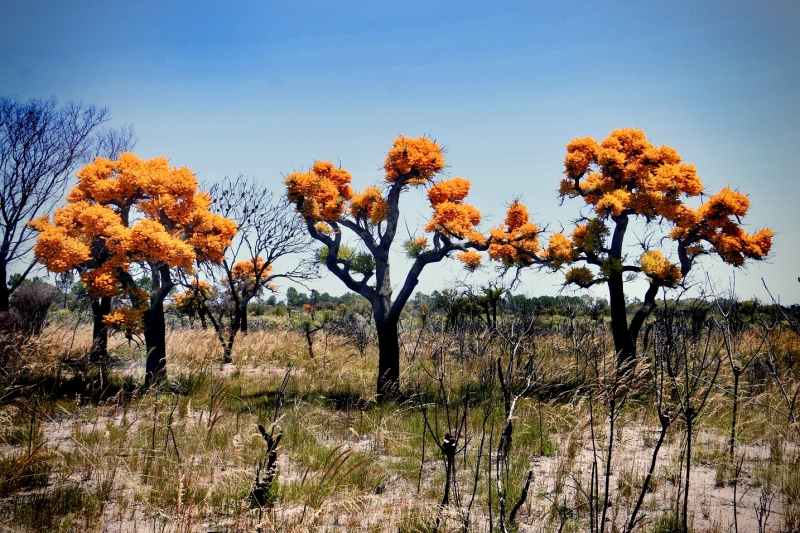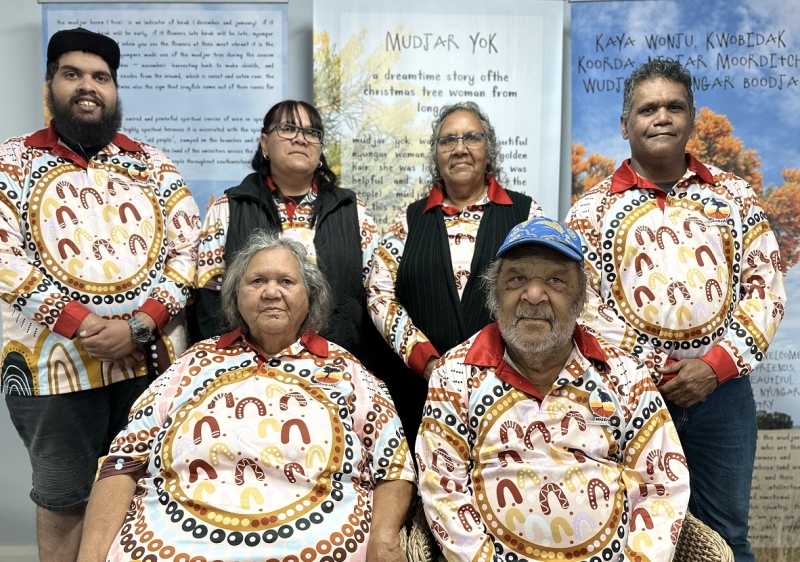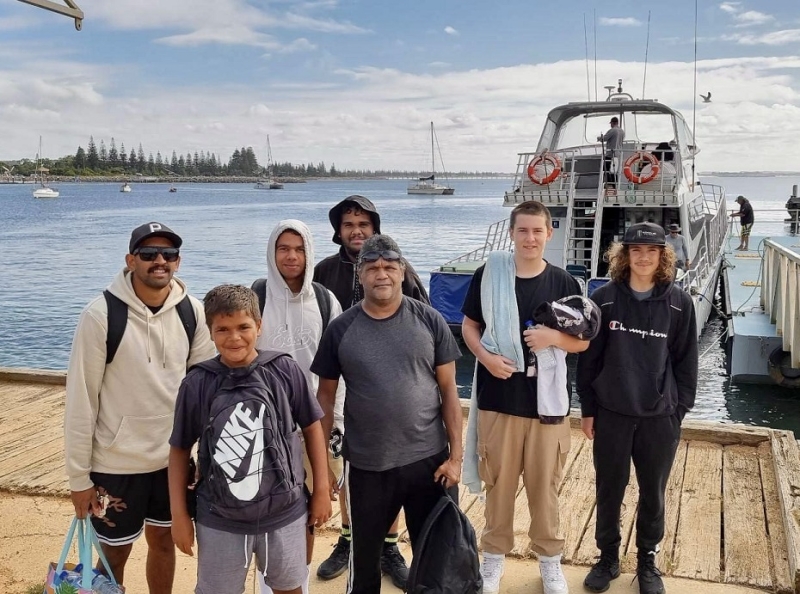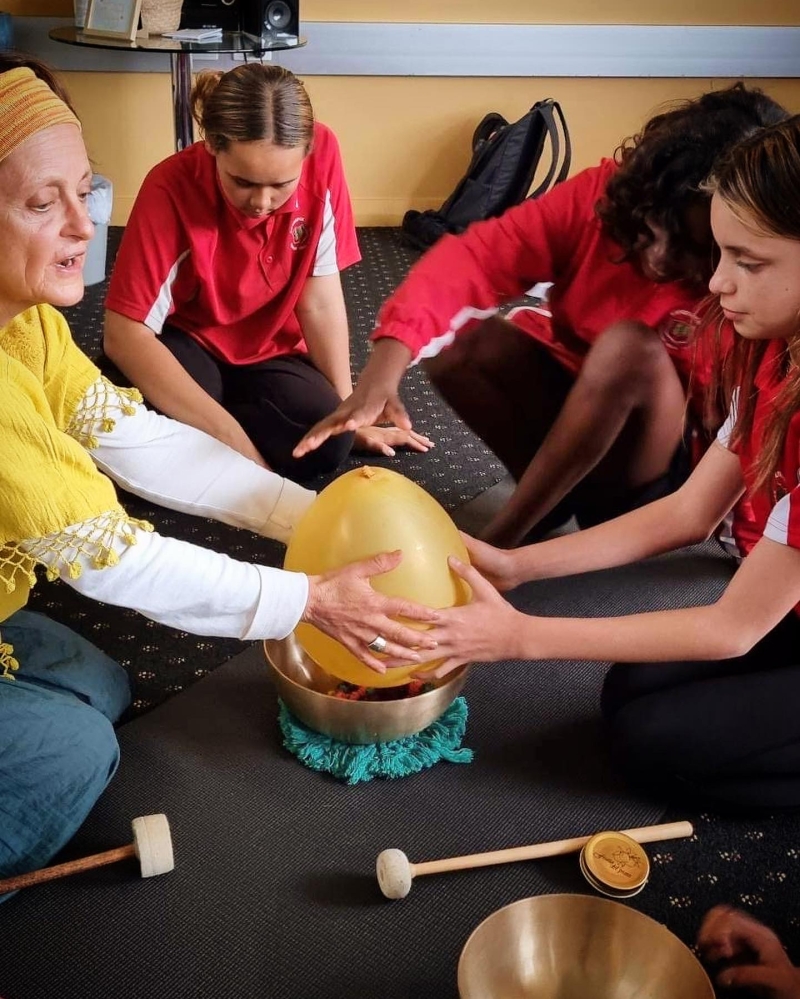Unifying the community with the strength of culture
When the bright orange blooms appear on the Mudjar Tree, it signals to Nyungar people that Birak (Summer) has begun. The tree is important in Nyungar culture. It brings knowledge about food, like the crayfish that exit their caves during Birak. Or the sweet edible gum that bleeds during Kambarang (Spring) after bark is pulled to make canoes or shields. It’s at the centre of spiritual stories and sacred knowledge.

This special and stunning tree grows in south-west Western Australia, including Esperance, where Mudjar Aboriginal Corporation (MAC), like its namesake, is a guide and support for community strength. Every one of MAC’s roles centres on bringing people together. It does this through cultural education and preservation, with popular programs immersing people in Nyungar art, language, stories and Country.
Set up to share, learn and move forward together
Ngulla Mia – Our Place – has been MAC’s ‘home base’ for cultural activities since the program was set up in 2020. People come to Ngulla Mia for dreamtime stories, art, music and dance. It’s a dynamic space that evolves with the programs it hosts. Ngulla Mia’s Aboriginal Art Gallery and Creative studio (which sponsors ART Kaartdijin Program participants), wood workshop, meeting rooms and veggie patch are well-known and established. They will soon expand to include a cultural garden and bush tucker nursery.

The Ngulla Mia program in action
‘Our vision is to celebrate culture and share knowledge, while our goal is to promote learning and wellness by connecting people, ideas and resources,’ says Jennifer Woods, MAC Director and Chairperson.
‘We can only get this done with strong governance, which we actively focus on. We support Indigenous decision-making and leadership through a strong Aboriginal Board that combines traditional governance practices, based in culture and kinship, with mainstream organisation requirements – like financial and legal accountability.’
Taking opportunities from tough times

MAC’s Board of Directors
Nyungar, Wudjari, Ngadju and Wongi people from the region make up MAC’s Board of Directors. Members are all Aboriginal and Torres Strait Islander people aged at least 18 years. It’s important that their values align with MAC’s objectives for governance to work well.
In recognition of its good governance and commitment to reconciliation, MAC was awarded a finalist position in Reconciliation Australia’s Indigenous Governance Awards in 2022.
‘The past year has been a celebration of unity amongst our community,’ says Atheleen Thomas, Wudjari Nyungar Artist and Art Kaartdijin Facilitator.
‘After the world turned upside down, our whole business model shifted to accommodate the new post-COVID world. We found ourselves at the head of some inspiring new programs and forming new partnerships in our community.
‘This allowed us to really explore reconciliation and what it means to us.’
New partnerships for bigger reach and justice outcomes
MAC was already welcoming young people aged 12 to 24 at risk through their Pallet to Furniture Programs in 2019 and 2020. MAC expanded on this in 2022 with its Moorditj Moort Program, an initiative promoting positive relationships with school and family to reduce offending behaviour. Moorditj Moort supports young people with mentors, engaging activities and connecting them with other resources. It empowers young people with the tools to become strong individuals who take control of their lives.

Participants in the Moorditj Moort program
In the past year, MAC has focused on growing its partnerships. In turn, it’s expanded its reach and ability to get better outcomes for the community in areas like education, employment, wellbeing and justice.
Through its partnership with the Department of Corrective Services, MAC hosts offenders repaying their crime debt through community service hours. In the Repay WA program, offenders gain new skills and do meaningful work, while giving organisations like MAC valuable help. For example, to develop the cultural gardens and bush tucker nursery or taking part in art workshops.
Similarly, Aboriginal people experiencing hardship and who have unresolved fines can work them off with MAC through the Work and Development Permit (WDP) Scheme. The scheme allows people to do approved activities at MAC under the supervision of a sponsor. WDP is in partnership with the Aboriginal Legal Service of Western Australia Ltd and Government of Western Australia’s Department of Justice.
These justice-focused partnership programs are helping to reduce the rates of youth offending, incarceration and re-offending for Aboriginal people. At the same time, they engage people in activities that support the community and their own mental health.
‘We develop and nurture these relationships and partnerships with community members, groups, agencies and all levels of government because they strengthen the work we do for the whole community,’ says Kylie Ryan, Corporation Manager.
‘They improve social, emotional and economic outcomes for Aboriginal people in ways we wouldn’t be able to do alone. Partnerships are key to the way we work.’
Continuing to grow in ways that connect and unify
MAC continues to explore ways to activate its goals for reconciliation and unity. Its popular gallery, art centre and cultural gardens continue to produce sought-after artworks and native ingredients. But these are also spaces for cultural and knowledge exchange between Aboriginal and non-Aboriginal people.

Participants in the Moorditj Moort program
Like the Mudjar Tree, MAC is a vibrant part of the community which continues to grow and bring people together to connect, share knowledge and get to the heart of reconciliation.
For more information on Mudjar Aboriginal Corporation, visit www.mudjar.org.au.